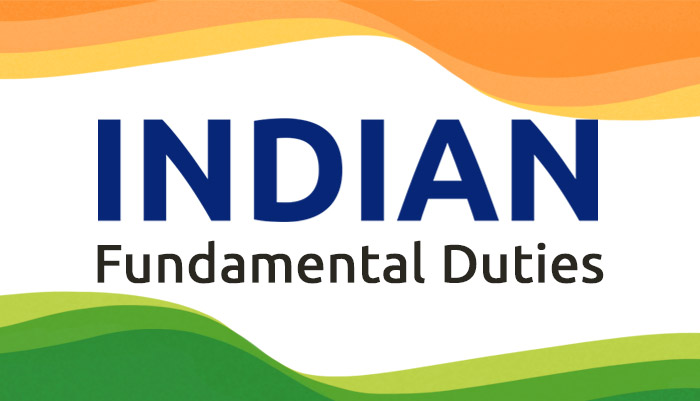
3.1 FUNDAMENTAL DUTIES
(ARTICLE 51A, PART IV OF CONSTITUTION)
A new chapter dealing with the fundamental duties (10 in number) for Indian citizens was added by the 42nd amendment. It shall be the duty of every citizen of India in 1976.
To abide by the Constitution and respect its ideals and institutions, the National Flag and the National Anthem;
To cherish and follow the noble ideals which inspired our nation struggle for freedom;
To uphold and protect the sovereignty, unity and integrity of India;
To defend the country and render national service when called upon to do so;
To promote harmony and the spirit of common brotherhood amongst all the people of India transcending religious, linguistic and regional or sectional diversities, to renounce practices derogatory to the dignity of women;
To value and preserve the rich heritage of our composite culture;
To protect and improve the natural environment including forests, lakes, rivers and wildlife and to have compassion for living creatures;
To develop the scientific temper, humanism and the spirit of inquiry and reform;
To safeguard public property and to abjure violence
To strive towards excellence in all spheres of individual and collective activity so that the nation constantly rises to a higher level of endeavour and achievement.
To provide opportunities for education to his child or ward between the age of six and fourteen years. This duty was added by the 86th Constitutional Amendment Act, 2002.
3.2 Swaran Singh Committee Recommendations
In 1976, the Congress Party set up the Sardar Singh Committee to make recommendations about fundamental duties, the need and necessity of which was felt during the operation of the internal emergency (1975-1977).
The committee recommended the inclusion of a separate chapter on fundamental duties in the Constitution. It stressed that the citizens should become conscious in addition to the enjoyment of rights. They also have certain duties to perform as well. The Congress Government at Centre accepted these recommendations and enacted the 42nd Constitutional Amendment Act in 1976. This amendment added a new part, namely, Part IVA to the Constitution. This new part consists of only one Article, that is, Article 51A which for the first time specified a code of ten fundamental duties of the citizens. The ruling Congress party declared the non-inclusion of fundamental duties in the Constitution as a historical mistake and claimed that what the framers of the Constitution failed to do was being done now.
Though the Swaran Singh Committee suggested the incorporation of eight Fundamental Duties in the Constitution, the 42nd Constitutional Amendment Act (1976) included ten Fundamental Duties.
Interestingly, certain recommendations of the Committee were not accepted by the Congress Party and hence, not incorporated in the Constitution. These include:
The Parliament may provide for the imposition of such penalty or punishment as may be considered appropriate for any non-compliance with or refusal to observe any of the duties.
No law imposing such penalty or punishment shall be called in question in any court on the ground of infringement of any of Fundamental Rights or on the ground of repugnancy to any other provision of the Constitution.
Duty to pay taxes should also be a Fundamental Duty of the citizens.
